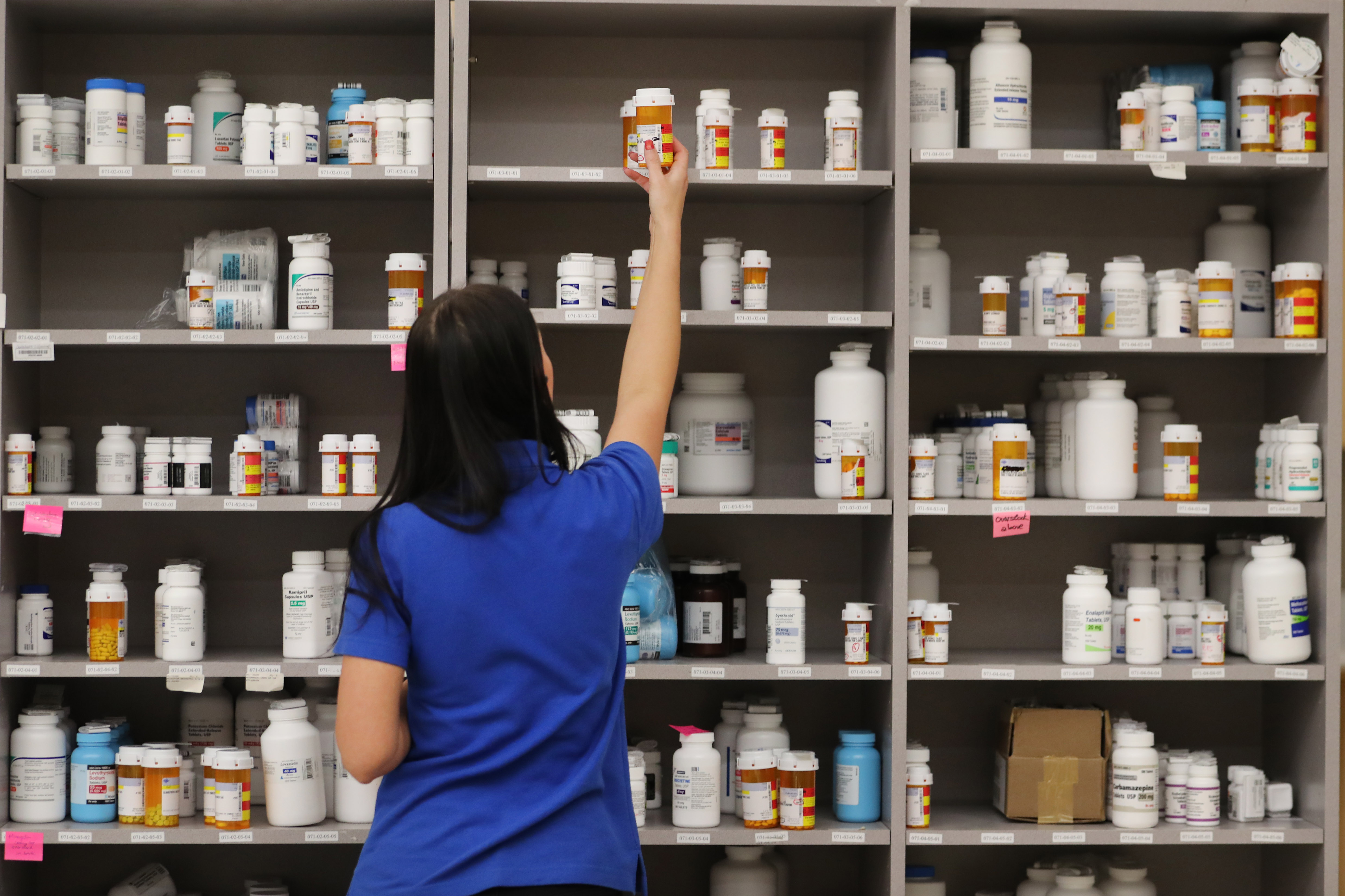Big Pharma's profitable philanthropy
A roundup of the week's best financial stories from across the web

A free daily email with the biggest news stories of the day – and the best features from TheWeek.com
You are now subscribed
Your newsletter sign-up was successful
Here are three of the week's top pieces of financial advice, gathered from around the web:
Big Pharma's profitable philanthropy
"Half of America's 20 largest charities are affiliated with pharmaceutical companies" that fund copayments on prescriptions for drugs that they manufacture, said The Economist. The drug companies set up the charities to defray the costs of copayments on expensive drugs, but this has "the fortunate consequence of making their customers price-insensitive." The charity run by AbbVie is the third largest in the country, while Bristol-Myers Squibb runs the fourth largest. In total, 13 companies spent $7.4 billion on these programs in 2016. Having copayments gives patients incentive to stick with the companies' drugs instead of opting for cheaper generics — ultimately helping the drugmakers' bottom line. The companies can then deduct up to twice the cost of their donations from pretax profits.
The Week
Escape your echo chamber. Get the facts behind the news, plus analysis from multiple perspectives.

Sign up for The Week's Free Newsletters
From our morning news briefing to a weekly Good News Newsletter, get the best of The Week delivered directly to your inbox.
From our morning news briefing to a weekly Good News Newsletter, get the best of The Week delivered directly to your inbox.
Doing your own tune-up
Do-it-yourself auto repair shops are popping up across the U.S., said Steve Friess at The New York Times. One typical location, My Mechanics Place in Detroit, supplies the bay, the lift, and some tools for $25 an hour. For a simple task like an oil change or tire realignment, the DIY garage could save you "60 to 80 percent on the repair costs." The concept isn't entirely new — oil companies used to lease garage stalls and lifts in the 1970s for "customers to do their own work." As cars grew more durable, the practice died out. However, some "garage entrepreneurs saw the escalating cost of auto repairs and the reputation of some dishonest mechanics as an opportunity for a renaissance." The only requirement is that you know what you're doing.
More trouble at beleaguered G.E.
General Electric's shares plummeted after a whistleblower accused the company of fraud, said Thomas Gryta and Mark Maremont at The Wall Street Journal. Harry Markopolos is best known as the "accounting expert who raised red flags about Bernie Madoff's Ponzi scheme" years before it became public. Last week, he published a 170-page research report alleging that "the struggling conglomerate has masked the depth of its problems." Markopolos says G.E.'s troubled long term–care insurance business faces $30 billion in claims over the next two decades. The report says G.E. has lied about the severity of the liability and needs to boost its insurance reserves substantially more than the $15 billion it already announced in 2018. The company denies the accusations. Once beloved by the markets, G.E. now trades at a 10-year low.
A free daily email with the biggest news stories of the day – and the best features from TheWeek.com
-
 Switzerland could vote to cap its population
Switzerland could vote to cap its populationUnder the Radar Swiss People’s Party proposes referendum on radical anti-immigration measure to limit residents to 10 million
-
 Political cartoons for February 15
Political cartoons for February 15Cartoons Sunday's political cartoons include political ventriloquism, Europe in the middle, and more
-
 The broken water companies failing England and Wales
The broken water companies failing England and WalesExplainer With rising bills, deteriorating river health and a lack of investment, regulators face an uphill battle to stabilise the industry
-
 The billionaires’ wealth tax: a catastrophe for California?
The billionaires’ wealth tax: a catastrophe for California?Talking Point Peter Thiel and Larry Page preparing to change state residency
-
 Bari Weiss’ ‘60 Minutes’ scandal is about more than one report
Bari Weiss’ ‘60 Minutes’ scandal is about more than one reportIN THE SPOTLIGHT By blocking an approved segment on a controversial prison holding US deportees in El Salvador, the editor-in-chief of CBS News has become the main story
-
 Has Zohran Mamdani shown the Democrats how to win again?
Has Zohran Mamdani shown the Democrats how to win again?Today’s Big Question New York City mayoral election touted as victory for left-wing populists but moderate centrist wins elsewhere present more complex path for Democratic Party
-
 Millions turn out for anti-Trump ‘No Kings’ rallies
Millions turn out for anti-Trump ‘No Kings’ ralliesSpeed Read An estimated 7 million people participated, 2 million more than at the first ‘No Kings’ protest in June
-
 Ghislaine Maxwell: angling for a Trump pardon
Ghislaine Maxwell: angling for a Trump pardonTalking Point Convicted sex trafficker's testimony could shed new light on president's links to Jeffrey Epstein
-
 The last words and final moments of 40 presidents
The last words and final moments of 40 presidentsThe Explainer Some are eloquent quotes worthy of the holders of the highest office in the nation, and others... aren't
-
 The JFK files: the truth at last?
The JFK files: the truth at last?In The Spotlight More than 64,000 previously classified documents relating the 1963 assassination of John F. Kennedy have been released by the Trump administration
-
 'Seriously, not literally': how should the world take Donald Trump?
'Seriously, not literally': how should the world take Donald Trump?Today's big question White House rhetoric and reality look likely to become increasingly blurred